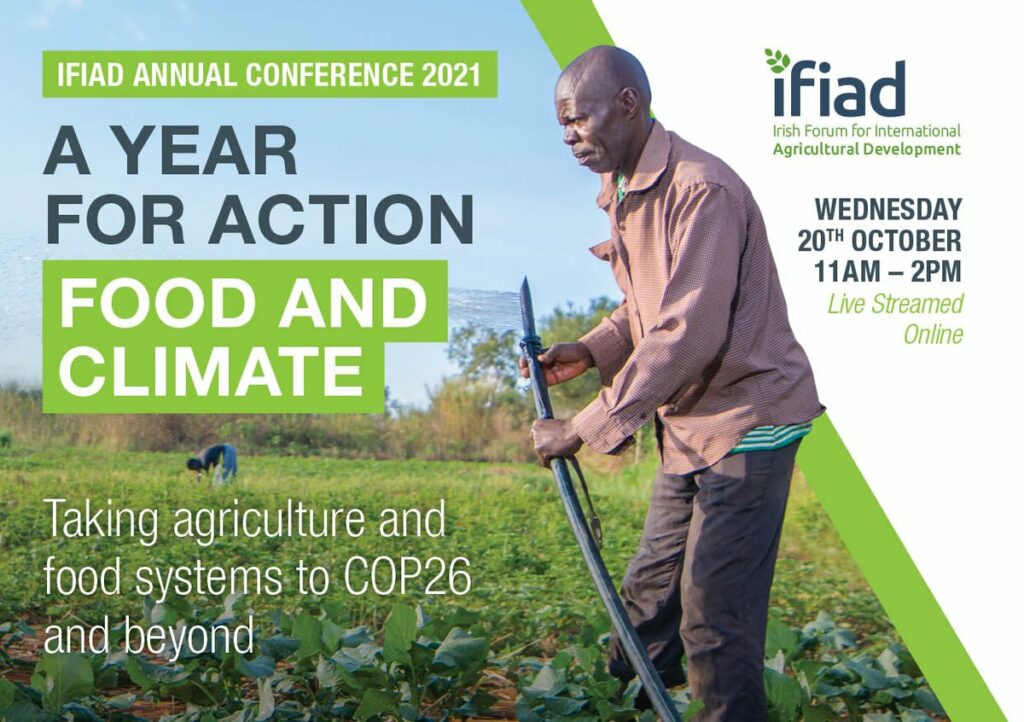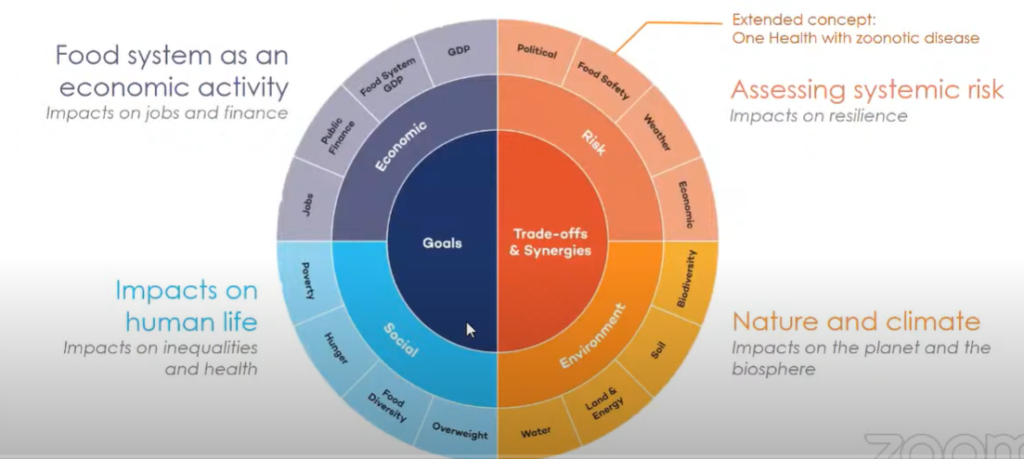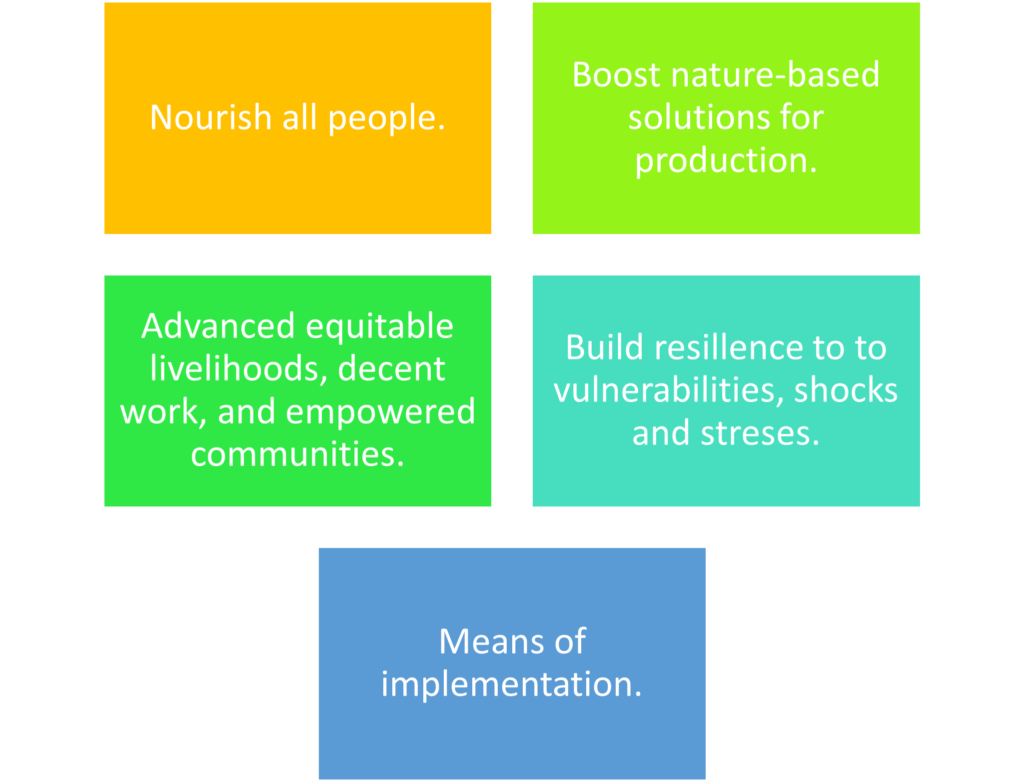IFIAD Conference 2021, Overview and Learnings.
IFIAD Conference 2021, Overview and Learnings.

As a MScCCAFS student I was granted the opportunity to attend the Irish Forum for International Agricultural Development conference for 2021. This conference highlighted the major outcomes of the Food Systems Summit, and simultaneously discussed possible action areas in agriculture and food systems which could potentially be aligned with the upcoming COP26. This conference was very interesting and insightful and in the coming paragraphs I will discuss some of the key information and thoughts I took away from the conference.
Key issues raised
It is undeniable that challenges that arise from increasing climate change are significant, growing and have been intensified as a result of the COVID-19 pandemic. Some of the issues that were highlighted during the conference include how 811 million people remain undernourished accounting for 1/10 of the worlds population, thus indicating that reaching zero net hunger by 2030 is very unlikely. Any progress that has been made in this area has seemingly been reversed by factors such as the COVID-19 pandemic. Global GHG emissions have reached a new high in the year 2021 and in addition to this the International Energy Agency Report and the Emissions Gas Report was released indicating that we are severely off track to reaching a reduction of emissions by 40% by the year 2030, and zero emissions by 2050. During the conference there was a major focus on the need for a more inclusive systemic approach in order to combat these issues and to achieve sustainable development. It was highlighted that for a systemic approach to work it should include private sectors, stakeholders, as well as civil groups and indigenous groups.
During the conference one major issue that was highlighted was the need for a systemic approach. What is meant by this? There is a dire need for synergy across sectors, stakeholders, and tradeoffs along with trying to engage as many people as possible for a systemic system to work. The importance of empowerment of governments at a country level was also emphasized, so that countries can combine and act together to make the changes that are desperately needed. The importance of a systemic approach can be summarized in the image below. Other factors that were highlighted included how to involve farmers more in the systems, and the important role primary producers play in transforming food systems, and how they need support on a national and international level to achieve the changes needed to improve competitiveness, innovation, protect and restore biodiversity and address the urgent need for climate actions.

5 Action Areas
In response to the issues discussed in the previous paragraph there was 5 action areas discussed at the summit. These 5 action areas can be seen from the image below. In response to these 5 action areas collations and 231 commitments were created, examples include the Public Developments Bank Coalition in response to means of implementation, an example of a commitment that was made was the Build more resilient, climate-smart, nutritious, gender equitable and viable agri-food production system – AfricaRice, Once-CGIAR.

Lack of consensus
During the conference there was also discussion about the areas they believed there was a lack of consensus. One of the major areas was politics. It was highlighted in the conference that governance issues tend to be at the center and main driver for shifting overall food systems. One major fear I believed was most prevalent throughout the conference was the fear that countries governments will shy away from political issues and will opt for easier routes such as the route of technological solutions and will avoid political issues around creating more equitable food systems. Ignoring factors such as political issues may lead to lack of equity, and ignoring the needs of the most vulnerable and marginalized. Another factor that was flagged was the need for more transparency in decision-making processes, where representation should be coming from all stakeholders in the systems and not only from the more dominant and large scale stakeholders. In hand with this it was highlighted that trust across food systems including consumers and civil society is a vital factor for the development of sustainable food systems.
With COP26 approaching I’m sure that many of the issues spoken about in the IFIAD conference will be debated and discussed, however there were some issues that were not discussed that may be of importance for COP26. One being alternative sources for energy consumption and possible plans to reduce fossil fuel use as a main energy source. Factors such as increasing air pollution and its effects on human health could also be a major issue discussed at the COP26. I did notice that during the IFIAD there was a lack of focus on the marine and oceanic area, and I hope that issues relating to this area, will be of importance and discussed greatly during the COP26.
Learnings from the IFIAD conference
From the IFIAD conference the main things I learned are listed below
- Inclusive national dialogues need to be working on, by including farmers in decision making.
- Difficult compromises in politics, between stakeholders and governments will need to occur for change to happen.
- Political issues need to be dealt with head on.
- Inclusivity and equity are vital factors for sustainable development of food systems.
- The need for a systemic approach is vital in the development of a sustainable future.
In conclusion the IFIAD summit gave great insight into what mitigations need to occur and the challenges that lie ahead, highlighting the need for synergies in governments, empowerment of countries and trust in the overall food systems. It will be interesting to see how these issues will be discussed during COP26, and to see additional issues being discussed.
Additional sources